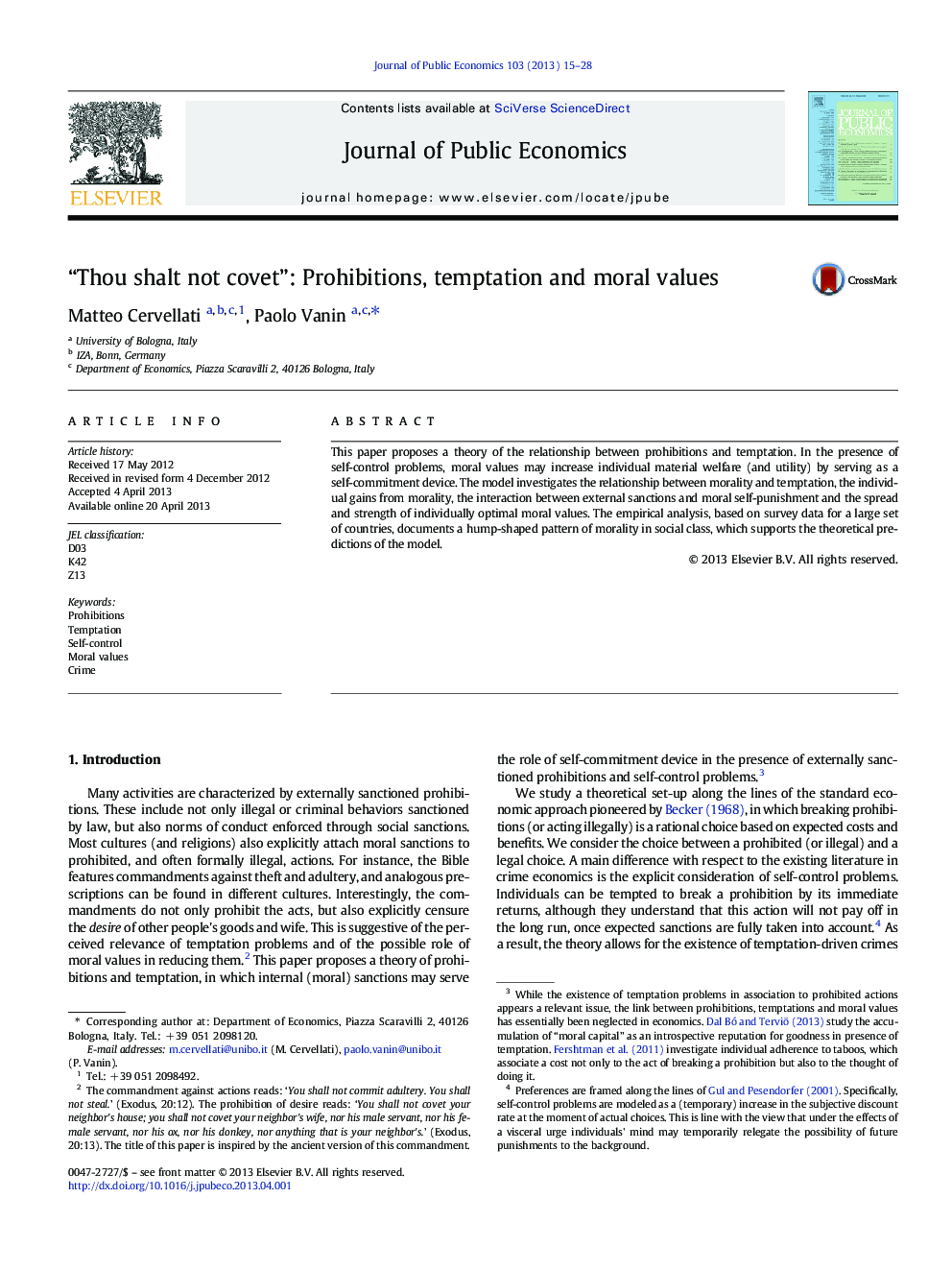| Article ID | Journal | Published Year | Pages | File Type |
|---|---|---|---|---|
| 969837 | Journal of Public Economics | 2013 | 14 Pages |
•We propose a theory of the relationship between prohibitions and temptation.•In the presence of temptation, moral values may serve as a self-commitment device.•The theory predicts a non-monotonic pattern of individually optimal moral values.•The empirical analysis supports this prediction.
This paper proposes a theory of the relationship between prohibitions and temptation. In the presence of self-control problems, moral values may increase individual material welfare (and utility) by serving as a self-commitment device. The model investigates the relationship between morality and temptation, the individual gains from morality, the interaction between external sanctions and moral self-punishment and the spread and strength of individually optimal moral values. The empirical analysis, based on survey data for a large set of countries, documents a hump-shaped pattern of morality in social class, which supports the theoretical predictions of the model.
